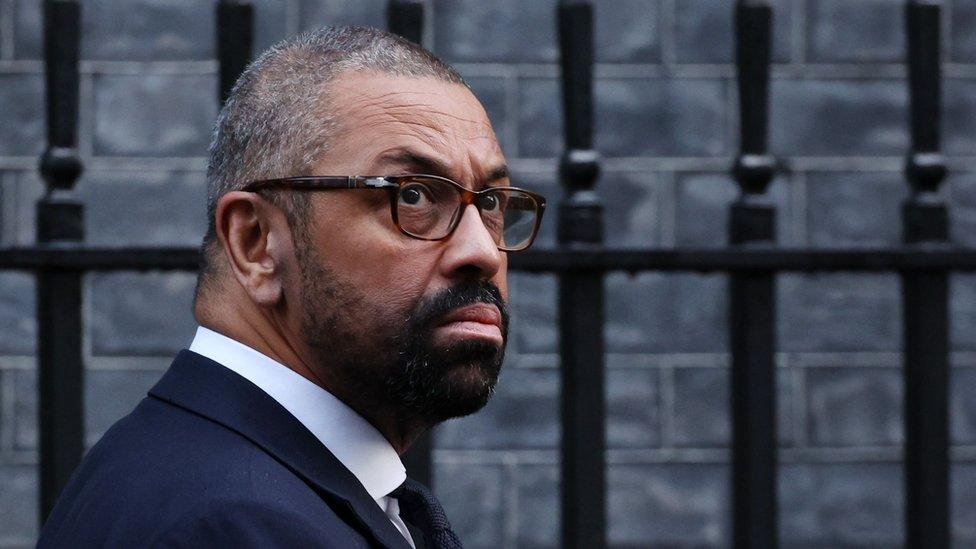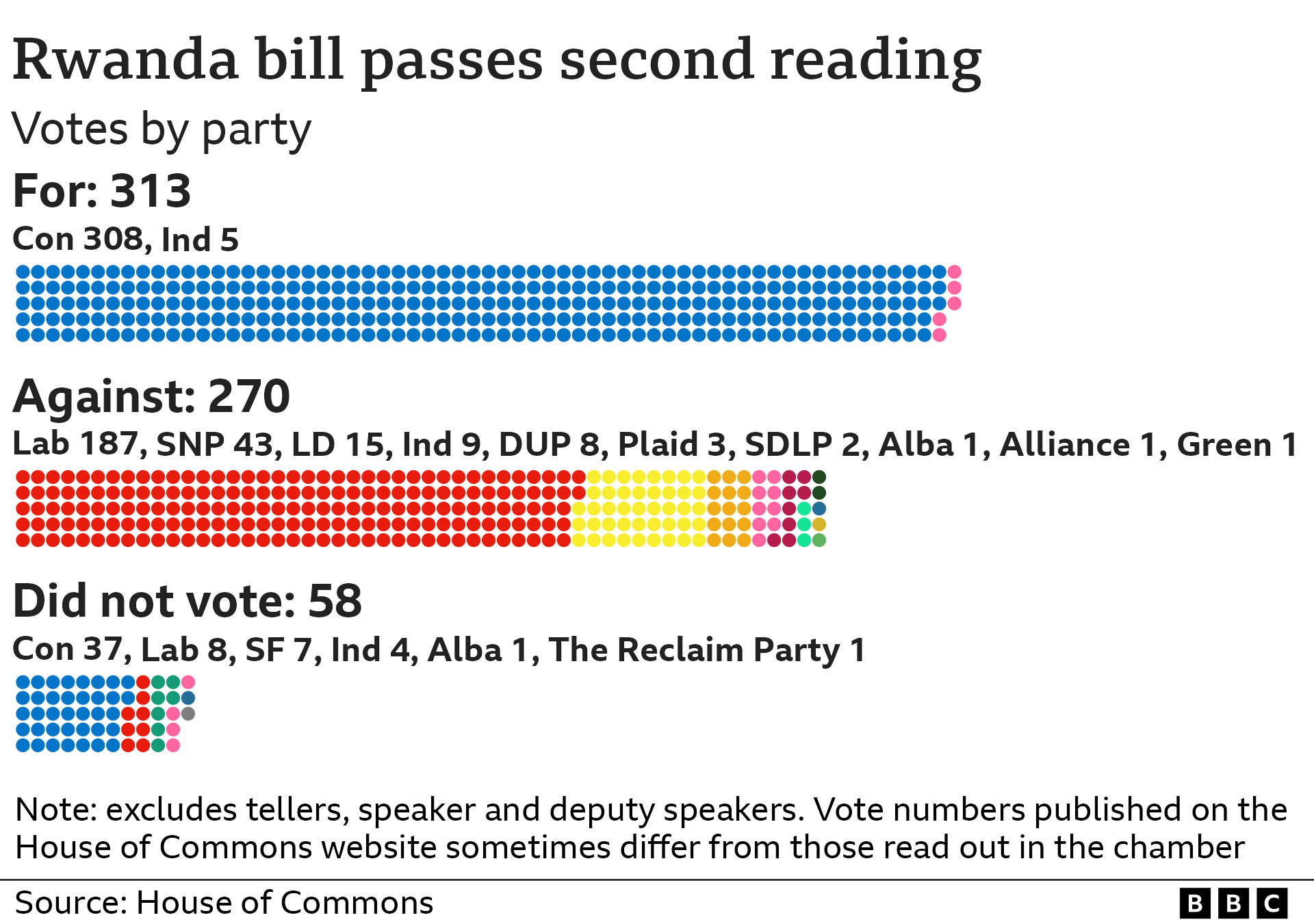Rwanda bill must be in Goldilocks zone, says James Cleverly
- Published
- comments

The Rwanda bill must be in the "Goldilocks zone" between being "tough enough", abiding by international law and being acceptable to Rwanda, Home Secretary James Cleverly has said.
The bill passed its first parliamentary hurdle, despite 29 Tory MPs refusing to back it.
However, the government is expected to face trickier battles when the bill returns to the Commons next year.
Mr Cleverly said he would listen to "good faith" arguments from MPs.
Speaking to BBC Radio 4's Today programme, he said the Conservatives were "unified" in their commitment to deal with the problem posed by migration.
Labour's shadow home secretary Yvette Cooper said disagreements over the Rwanda bill were part of an "ongoing psychodrama" in the Conservative Party.
The government's plan would see some asylum seekers sent to Rwanda, where they would have their claims processed and potentially be resettled.
Ministers hope this will deter people from trying to get to the UK by making the dangerous journey across the Channel in small boats.
The policy was blocked by the Supreme Court last month over safety concerns, forcing the government to introduce new emergency legislation.
The Safety of Rwanda bill has come under attack from different sides of the Conservative party.
The right-wingers on the European Research Group have argued the bill in its current form is not robust enough, with leader of the group Mark Francois saying they had been told Prime Minister Rishi Sunak was "prepared to entertain tightening the bill".
However, any attempt to change the language could anger other Conservatives who have concerns that could lead to the UK breaching its international obligations.
Mr Cleverly said he would listen to his colleagues' concerns and any "good faith arguments" about the legislation.
Ms Cooper told the BBC that Labour opposed the scheme because it comes with a "huge cost" and would only see a small number of people sent to Rwanda.
Asked if Labour opposed the principle of the idea of "offshoring" - handling claims overseas - she said her party would "look at whatever works".


Labour along with the Liberal Democrats and SNP voted against the bill on Tuesday night; however, no Conservative MP voted against the bill.
There had been fears in government that there could be a Tory rebellion, and in a sign of nerves, Climate Minister Graham Stuart flew back from the COP28 climate conference in Dubai to vote.
However, in the end the bill passed with a comfortable 44 majority - with 313 in favour and 270 opposed.
Twenty-nine Conservative MPs chose to abstain from voting on the bill - including former Immigration Minister Robert Jenrick and former Home Secretary Suella Braverman.
Altogether 37 Tory MPs did not record a vote, however some of those may have simply been unable to attend the vote rather than deliberately abstaining.
The bill will return to the House of Commons in January, where MPs will be able to propose amendments.
Before becoming law, the bill will also have to be approved by the House of Lords where it will meet stiff opposition from some peers.